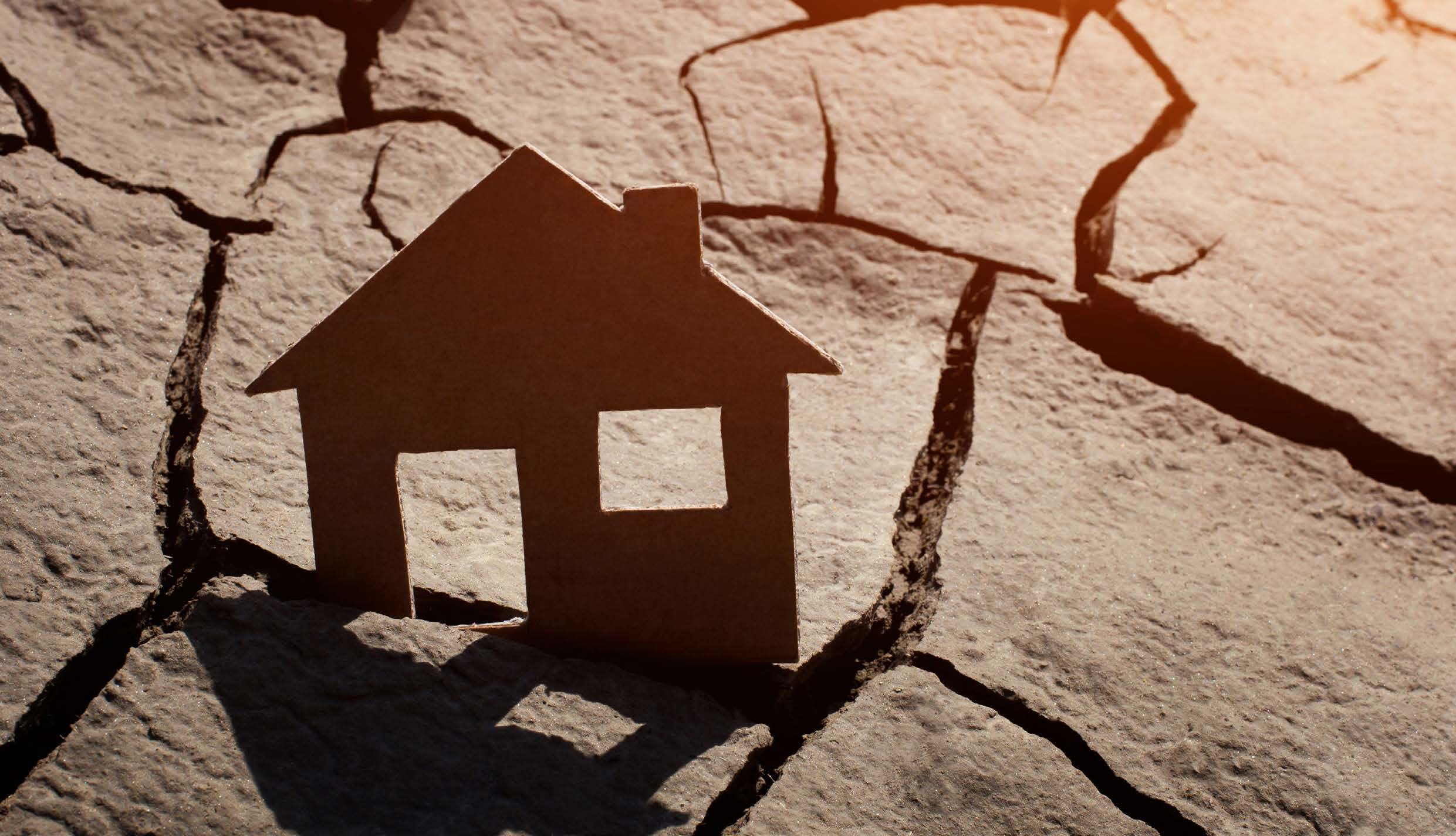
In this issue:
How much is an older mortgage costing you?
Will we see property prices rise in 2021?
HomeBuilder has been extended – so should you build a home?
Can I do that at my rental property?
How much is an older mortgage costing you?
When it comes to mortgages, customer loyalty doesn’t seem to pay off.
A home loan price inquiry by the ACCC has found that those with older mortgages are paying significantly higher interest rates than new borrowers, which is costing them thousands of dollars.
Those with a mortgage between three and five years old are paying on average about 0.58% more in interest than the average rate charged on new loans.
This means that a borrower with a loan balance of $250,000 could be saving $1,400 in interest in the first year simply by switching to a new loan that has the lower, average rate on new loans.
Over the remaining term of the loan this could result in a saving of more than $17,000 in interest.
The difference between the interest paid on new and existing loans seems to increase the older a loan gets.
The gap is much wider for those with a loan more than 10 years old, with the ACCC report finding that they could be paying about 1.04% more in interest than new borrowers.
What’s the solution?
The ACCC has made a number of recommendations to help close the interest rate gap between new and old customers, including making it easier to switch loans as well 2021 as the requirement that customers be provided with annual reminders to review their rate.
However one of the easiest ways for mortgage holders to ensure they are getting the best deal is to regularly review their rate and talk about their options with their current lender.
It’s well worth taking the time to find out the current interest rates on the market and chatting to your lender to see if they can improve what they’re offering.
If they can’t then it may be worth doing a bit or research and considering the option of switching your home loan if it’s going to result in a better outcome for you.
Will we see property prices rise in 2021?
There’s probably not a single person who made accurate predictions about the rollercoaster ride that was 2020 and while it’s impossible to know for sure what’s still around the corner, 2021 is shaping up to be a good year for property.
House prices across the country are set to continue on their path to recovery after seeing declines through last year, as Australia came to terms with living through a global pandemic.
From April to September 2020 there was a 2.1 per cent drop in home values, according to CoreLogic data.
Property prices have been rising steadily in the months since however, and if it continues at the same rate then we could see property prices climb higher than pre-COVID levels within the first few months of 2021.
ANZ economists have forecasted that prices will rise by 9% across Australian capital cities over the year.
There will be differences in price movements across states and housing types however.
Melbourne, for example, may lag behind the other states due to its prolonged lockdown. However it has seen a strong bounce back in activity since the city opened up.
FOMO increasing amongst buyers
Government incentives and historically low interest rates have helped keep buying activity strong, and it’s showing no signs of slowing down.
Throughout the country a lot of people are seeing the benefits of getting into the property market.
First home owners have the advantage of not having the competition from investors and overseas buyers like they used to, and there is also generous government grants such as the HomeBuilder scheme that make getting into the property market that little bit easier.
With things like international travel and other activities being off the cards, a lot of people have also been using time during the pandemic to save more than they might have otherwise, with many people choosing to funnel these savings towards a home purchase.
A good time to sell
There’s little doubt that buyer interest has been strong, but sellers have been more subdued than usual lately, possibly due to not wanting to sell during a pandemic.
Low inventory has been helping to prop up prices though and those that have sold have done well.
More sellers may choose to get into the market as property confidence grows, however prices are still expected to climb, with fears from some that the market could even get too over-heated thanks to crazy low interest rates.
No reason for buyers or sellers to hold back
If you’re in the position to buy or sell right now then there’s no time like the present.
For buyers, you will do well to get in while there is so much stimulus still around and before property prices get too high.
As for sellers, if you were thinking of upgrading your home then it would be wise to get in sooner rather than later if you suspect prices in your neighbourhood to rise.
That’s because while you might benefit from a 5% price rise at your current home over time, you will also have to pay an extra 5% on a more expensive home, which can see the price of your transaction inflate significantly.
If you’re after advice on what is best to do and when to make your move then don’t hesitate to get in touch with your local Professionals Real Estate office.
HomeBuilder has been extended – so should you build a home?
The HomeBuilder scheme will be sticking around for a little while longer (albeit at a reduced rate), but does that mean that you should consider building a home instead of buying an existing property so you can take it up?
While the HomeBuilder scheme can be used for those planning extensive renovations on established homes, most of the people taking up the scheme have been those building brand new, possibly because they can use it alongside first home owner grants, which when combined can give a generous leg up into the property market.
But while building a brand new home may sound appealing, it’s important to be aware of the drawbacks of building a home over buying an already established property.
First let’s look at the cons of building a home:
- It takes time
A big drawback of building a brand new home is that you’re going to have to wait until construction is complete before you can move on in, as opposed to an existing home where you can move in as soon your contract settles.
It might take 6 months to a year before your new home is ready, or perhaps even longer if there are hiccups along the way, which brings us to the next point. - The unknown
Building a new home involves taking on a certain level of risk because there’s a lot of hiccups that can happen while the build is taking place, such as bad weather events, problems with the builder or issues with council.
Some setbacks can involve extra costs being incurred than what you initially anticipated too, so it’s always worth having a contingency fund for anything that might come up. - A mountain of decisions
While some people may relish all of the decisions that need to be made on a new build, others may find it very stressful.
There are a lot of details involved in putting a home together and you might need to pick out things like paint colours, cabinetry, benchtops, fixtures and flooring – just to name a few.
It can take a lot of time pinpointing what will work best for you, particularly if you’re trying to keep to a tight budget. - Land can be hard to find where you want it
If you want to build a home then you’re going to have to find a decent plot of land to put it on.
Unfortunately the right block isn’t always easy to come across, particularly if you want to stay close to major city centres.
Even if you don’t mind living in a new estate further away from a city, it can take time finding a block that you’re totally happy with.
Now, let’s look at the pros of building a home:
- Government assistance
There’s little doubt that government grants and concessions provide a major incentive to get into the market.
Even with the HomeBuilder extension being reduced to $15,000, this still provides a massive cash boost, particularly when coupled with a first-home buyers grant. - Everything is brand new
Building a home means you get to be the very first person to enjoy all of its brand new appliances, fixtures and finishes.
It also means you get to enjoy a modern layout and design, as well as high-quality products and materials that meet today’s building standards.
Your new home is also more likely to be more energy and water efficient than its older counterparts, which means savings on bills too! - Less maintenance
Homes that are built to modern day standards are not only likely to save on your bills, but they are likely to be lower maintenance too.
You likely won’t have to worry about things breaking down or wearing out when you first move into a new home, and if something does it may be covered under a builder’s warranty. - You can customise
If you’re building a new home then you can make it exactly the way you want it.
That means you can have a say in things like layout, colours, materials and more to make a home suited to your tastes and that works perfectly for you and your family.
Can I do that at my rental property?
You’ve just moved into a new rental property and no doubt you want to make it feel like home, but before making any changes keep in mind that you may need to reverse them once your lease is up.
When you leave your rental it needs to be returned to the same condition it was when you first moved in.
Even if you think a change is small, or an improvement, the owner may not agree. This might mean that you need to take the time returning a property to its original state when you leave, or you might end up forfeiting a portion of your bond.
Below are some common changes that you might be wondering about:
Hang up art and pictures
Art and photos on the wall can add a personal touch to a home, but they can leave unsightly marks behind on the walls too.
You can ask the property’s owner if it’s okay to hang up things on the walls using nails, however in most cases you would be better off making the most of temporary adhesive hooks that are less likely to damage the walls.
Mount a television to the wall
If you have a toddler or a pet then maybe you want to keep your television up high, but before you do you should definitely ask your landlord.
In some cases they may agree, however they may still stipulate that you need to bring in a professional to mount it for you, and that you need to return the wall to its original condition when you vacate, which could be costly.
Garden
Your lease will probably say you need to leave your garden in the same condition that you found it, so be mindful of this if you have grand plans for outside.
Not only can you get in trouble for pulling out any plants you don’t like, you might also be asked to pull out any ones you add in if the owner wants to keep the garden fuss-free.
The best way around this is to maintain the garden in its current state, and grow any new plants in pots and planting boxes that can be taken with you if you move.
Change light fixtures
As long as no rewiring is required, switching a light fixture over should be okay… however remember to keep the original fixture somewhere safe.
It’s not uncommon for things that are swapped out in rental properties, such as light fixtures, to be lost or damaged.
If this happens the property owner may be happy for it to be replaced by the fixture you have replaced it with, or you may need to hunt down or pay for what was originally there.
Install air-conditioning
Summer is brutal in many parts of Australia and so it’s understandable that a lot of renters make requests for air-conditioning to be installed.
In many cases the property owner will agree, but you may have to negotiate who pays for it.
In some instances the property owner will bear the cost, however in other situations the tenants will be asked to share the cost or perhaps agree to a higher rent.
If your landlord isn’t willing to have an air-conditioning unit installed at the property, then it’s worth looking into purchasing a portable option or using other methods to keep the property cool.
Overall however, no matter what you want to do at your rental it’s always worth talking to your property manager first and asking them for their advice.
The property owner may be happy for you to make various changes to your rental property, however be prepared for the answer to not always be what you were hoping to hear either.







